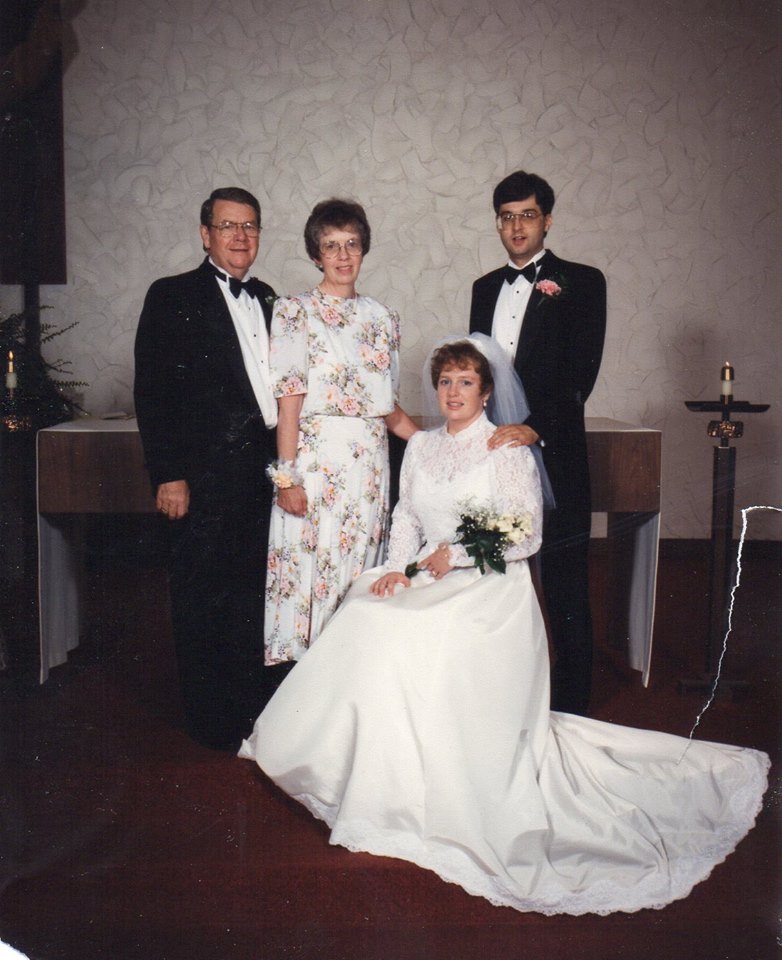One of the six main parts of an estate plan that every adult Iowan should have is a health care power of attorney (POA). This legal instrument allows you to designate the person that you want to make health care decisions for you in the chance that you become incapacitated and unable to make such decisions for yourself.
Who can be my Health Care POA Representative?
The person you pick is your agent/representative for purposes of health care decision-making and should be (a) a competent legal adult; (b) someone you trust would make health care decisions that align with your best interests; and (c) someone who agrees to the role. Some people elect to have the same person be their designated proxy for both the health care and financial powers of attorney. Other folks choose two different individuals for these roles.
It is highly advised to name an alternate representative in case the person you appoint becomes unable or unwilling to act on your behalf.
The law does not allow your health care designated agent to be a health care professional providing health care to you on the date you sign the document. It also cannot be any employee of the doctor, nurse, or any hospital or health care facility providing care to you. The only exception is if that employee is a close relative.
What types of Health Care Decisions does a POA Cover?
A health care power of attorney can govern any kind of decision that is related to your health that you allow. You could, for example, limit your representative to certain types of decisions. Or, you could allow your representative to make decisions for any type of health care choice/issue that may arise. This includes decisions to give, withhold, or withdraw informed consent to any medical and surgical treatments. Other decisions could relate to psychiatric treatment, nursing care, hospitalization, treatment in a nursing home, home health care, and organ donation.

When Would I use a Health Care POA?
A health care POA comes into play only when, in the certified and recorded opinion of your attending physician, you are unable to make health care decisions for yourself. Your named agent is then able to make decisions regarding your care, receive access to records, communicate with health care providers, and other important actions that would otherwise be off limits.
What is a Living Will?
The name of this document is bit of a misnomer. Sometimes referred to as an advanced directive, a living will is best thought of as a written declaration that informs health care providers of your desire to NOT have life-sustaining treatment continue if you are diagnosed as terminally ill or injured, are unable to communicate your choices regarding your treatment, and such treatment would simply prolong the inevitable and imminent process of dying. You may consider a living will an important part of the whole that is your health care power of attorney document
Under Iowa’s Living Will Law, a living will does not permit withholding or withdrawing food or water unless they are provided intravenously or by a feeding tube. Additionally, medication or medical procedures necessary to provide comfort or to ease pain are not considered life sustaining, and may not be withheld.
Because of the sensitive nature of the living will, before signing the document make certain the provisions included align with your philosophical and/or religious beliefs and wishes.
Important Definitions
“Life-sustaining treatment” is defined as the use of medical machinery such as heart-lung machines, ventilators, tube feeding, and other medical techniques that may sustain and possibly extend your life, but which won’t, by themselves, cure your condition.
“Terminal condition,” under Iowa law, is defined as an incurable or irreversible condition that without life sustaining procedures, results in death within a relatively short time or a comatose state from which there can be no recovery, to a reasonable degree of medical certainty.
In all states the determination as to whether you are in such a medical condition is determined by qualified medical professionals—typically your attending physician and at least one other medical doctor who has examined or reviewed your medical situation. The decision must be recorded in your medical records.

How do I Make a Living Will?
This is one of the documents I include in the estate planning packages for my clients, if they so elect to have one. The first step, at least when working with GFLF on your estate plan, is filling out my Estate Plan Questionnaire, which is where you can choose “yes” or “no” for creating a living will.
In terms of qualifications, you must be a competent, legal adult who is age 18 or older. The declaration can be signed in the presence of two witnesses (who also must be 18 or older and should not be family members if at all possible) or a notary public. Note that health care employees responsible for your care cannot be the witnesses.
Of course, the declaration for a living will must be signed voluntarily and without coercion.
What do I do Once I Sign a Living Will?
The original living will must be given to your doctor in order for it to be acted upon. Therefore your health care designated agent should have access to the original if the time comes when it is need.
Under Iowa law, it is your responsibility (and therefore your health care proxy if you are unable or incapacitated) to provide your attending physician (the doctor who is primarily responsible for your care and treatment) with the declaration. This attending physician might not be your family doctor, but it’s smart to give a copy of the living will to your family doctor to have on file. In addition, the living will’s existence should be made known to members of your family.
What Happens if I Change my Mind About my Living Will?
A living will is revocable at any time. You may revoke the document easily by notifying your attending physician of your intent to do so. This communication of intent will then be recorded by your attending doctor as a part of your medical record. If this is the case I also recommend contacting your estate planning attorney and health care designated agent to communicate your change. Depending on what is written in your health care POA that document may need revisions or additions, which is something your estate planning attorney can facilitate.

What About a Living Will Made in Another State?
This is a good question as each state has its own laws related to living wills and such decisions. A living will made in another state will be valid in Iowa to the extent that the declaration aligns with Iowa laws on the matter.
That being said, it’s best to have a current living will declared in the state you reside in and are most likely to receive care in. So, if you signed a living will while living in Colorado and then move to Iowa, it’s best to sign a new living will that is specific to Iowa’s laws. (Plus, moving across state lines is one of those big life changes that mean you should update your entire estate plan to be sure it’s valid under your new home state’s estate, property, and inheritance laws. So, you may as well update your living will while you’re at it!)
What Happens if I don’t Have a Living Will?
Without a living will stating your directives, others will be forced to decide if life-sustaining procedures will be used for you. (Typically this is a situation one does not want to place on their loved ones.) If you have a health care power of attorney, that representative will make the decisions regarding life sustaining treatments and procedures.
If you also don’t have a health care power of attorney in place, Iowa law states that the attending physicians and the first person available from the following list will make such health care decisions for you in front of a witness:
- A guardian, if applicable (Note that a court appointed guardian must obtain court approval before making this decision.)
- Your spouse.
- Your adult child (or a majority of your adult children who are available).
- Your parent or parents.
- Your adult sibling.
Communication is Key
Just like it’s important to discuss your estate planning decisions with your executor and family, it is equally important to discuss your health care and life-sustaining wishes with the person who will be your agent. You may also plainly state directives on your health care power of attorney form such as “I want all available organs to be donated in the event of my death.”
Review and Get Started
Whew. That was a lot of important information in one blog post. Let’s review how the two different but compatible documents of health care power of attorney and a living will:
- Your health care power of atttorney gives a proxy your designate and trust the authority to make medical decisions for you if you are unable to make them for yourself.
- The living will is a document specifically directing your physician that certain life-sustaining procedures should be withdrawn or withheld if you are in a terminal condition and unable to decide for yourself.
You can have a health care power of attorney document without having a living will. And, while not advised to not have a health care power of attorney document in place, you could technically have a living will without a health care power of attorney.
If you don’t have health care power of attorney or a living will in place, there’s no time like the present to make your decisions known and recorded well before the unexpected happens. Fill out my easy Estate Plan Questionnaire to get started. If you have any questions about either of these documents, don’t hesitate to contact me at gordon@gordonfischerlawfirm.com or by phone at 515-371-6077.





























